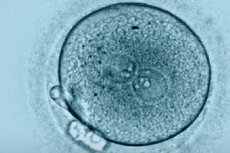A compound that slows the aging of eggs has been studied
Last reviewed: 07.06.2024

All iLive content is medically reviewed or fact checked to ensure as much factual accuracy as possible.
We have strict sourcing guidelines and only link to reputable media sites, academic research institutions and, whenever possible, medically peer reviewed studies. Note that the numbers in parentheses ([1], [2], etc.) are clickable links to these studies.
If you feel that any of our content is inaccurate, out-of-date, or otherwise questionable, please select it and press Ctrl + Enter.

The substance spermidine cleans the eggs and thus prolongs their activity. It is a simple compound found in soybeans, green peppers, broccoli, wheat germ, aged cheeses and many other products, although it was first isolated from sperm. The functional purpose of spermidine is to support adequate acid-base intracellular equilibrium, synchronize ionic levels, regulate fat metabolism and cell growth, etc. In addition, spermidine inhibits aging processes and lengthens life span, which was demonstrated in animal experiments.
This compound has been known about for a long time. It belongs to polyamines and is present mainly in the cell nucleus and ribosomes.
In a new study, scientists managed to prove that this substance prolongs the activity of rodent eggs. The oocyte reserve is stored in the ovaries of female mice. There the oocytes fully mature and become ready for fertilization. As the body ages, the ovarian follicles change, and the unripe oocytes become of poor quality. At the same time, spermidine levels decrease.
When aged rodents were injected or fed spermidine, degenerative processes were inhibited and oocytes became of higher quality. As a result, even old rodents began to produce twice as many offspring as females of the same age without spermidine.
It has been previously found that this compound activates the processes of autophagy and cell respiration. Autophagy means intracellular clearing of unnecessary molecular "garbage" that may pose a threat to cells. The older a cell is, the more "garbage" it contains: spermidine activates autophagy and thereby makes it possible to slow down age-related changes.
Cell respiration is a whole series of biochemical processes occurring in mitochondria. If we talk about oocytes, under the influence of spermidine, damaged mitochondria are removed and normal mitochondria improve their function.
In general, the activation of autophagy processes by spermidine and its improvement of energy metabolism are not new to the scientific world. However, only now these abilities of the compound have been "tied" to a specific physiological reaction. If we consider the peculiarities of the reproductive period, even in humans, the oocytes over the years lose their activity: with age, the ability to reproduce sharply declines. Now, thanks to the discovery of scientists, there is hope that in the near future the pharmaceutical industry will present us with the latest drugs based on spermidine. This will help block the reproductive aging of the female body and prolong the active childbearing period.
For more information, visit of Nature aging at.
